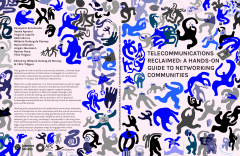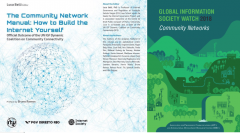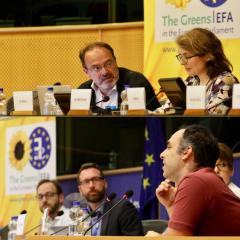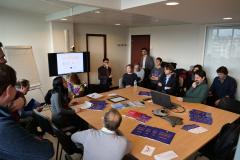Félix Tréguer receives the IAMCR 2017 CP&T Best Emerging Scholar Award
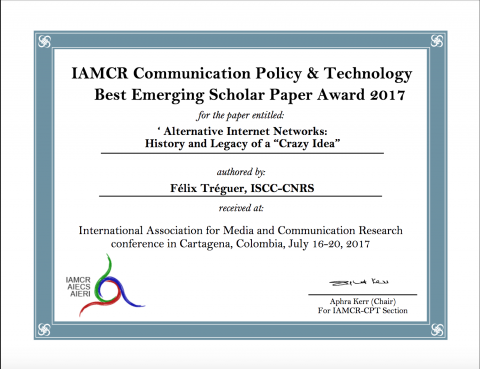
Félix Tréguer of the CNRS netCommons team received the 2017 Emerging Scholar Best Paper Award of the CP&T (Communication Policy & Technology) section of the IAMCR (international association for media and communications research) for his paper Alternative Internet Networks: History and Legacy of a “Crazy Idea”, based on the 3rd part of D5.1 on Alternative Communication Technologies Throughout History, which he presented in our netCommons joint panel at the Cartagena conference in July.
This paper looks at recent instances of alternative communications networks – namely two Internet community networks that emerged in the 1990's in France and Great Britain – to draw lessons for similar contemporary initiatives. We first consider the case of the French Data Network (FDN). Founded in 1992 and still in operation, FDN was the first Internet access provider available to the general public. It navigated regulatory changes in the telecom sector by becoming increasingly tied to the emerging digital rights movement and contributing to the emergence of a “critical Internet user” (Paloque-Bergès, 2015). Second, we turn to Consume.net, a collective associated with the London counter-cultural scene. From 1999 to 20003, Consume.net took advantage of the new WiFi protocols to subvert incumbent telecom operators’ hold on last-mile networks and promote a grassroots and locally-grounded approach to building and managing “wide area” networks (Medosch, 2014).
Based on existing literature, interviews with the founders of these initiatives as well as content and policy analysis, these two case-studies hold important lessons for today's community networks. While they confirm that community networks can emerge from diverse actors, with different motivations, political cultures, technical models or pricing schemes, they also show that these initiatives face two major challenges to ensure their sustainability: the articulation of local and global scales in connectivity needs, and the need to build advocacy capabilities aimed at influencing regulatory developments. But by tackling these challenges, community networks can become a strategic locus for reinterpreting traditional “mediactivism” in the digital era.
Félix Tréguer studies past and present power struggles surrounding the design and use of communication technologies by blending legal and policy analysis, history as well as political theory and sociology. He currently works on two research projects: one on communication surveillance and post-Snowden controversies (UTIC, CERI-Sciences Po), the other on community-owned telecom networks across Europe (netCommons, ISCC-CNRS). He is a founding member of the French digital rights group La Quadrature du Net. He is just completing his PhD at Ecole des Hautes Études en Sciences Sociales, France.

